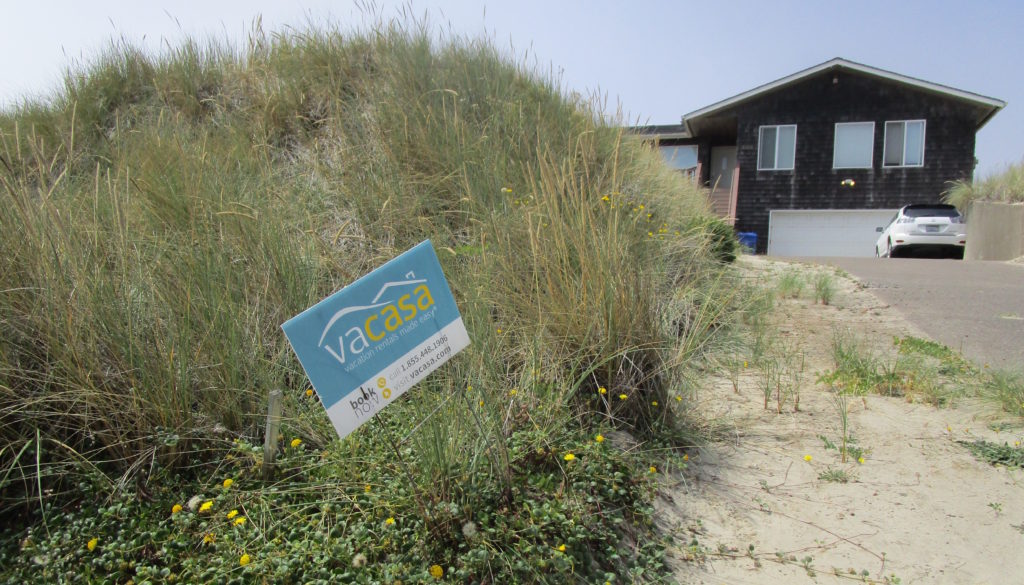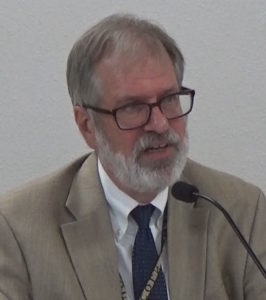
Lincoln County commissioners have implemented the first of what could be many changes to how they regulate short-term vacation rentals in unincorporated areas of the county.
The new rules apply to 546 licensed – and an estimated 50-60 unlicensed – short-term rentals on property outside cities from Yachats in the south to Otis in the north. The great majority of those are on septic systems, so the commission’s actions last week centered on those issues.
County commissioners voted unanimously to immediately:
- Define occupancy based on the rental’s number of bedrooms;
- Require that all septic systems be able to handle occupancy limits based on the number of bedrooms, that license holders must have a current septic permit with allowed number of bedrooms, and gave license holders without a septic permit 120 days to get their systems evaluated.
- Have the county re-calculate occupancy limits for all license holders beginning in January.
- If the county finds a failing septic system, the owner has to immediately cease renting and fix within 60 days or risk losing the license.
- Tighten procedures on license renewals, garbage service and signs.
“This is not the end of our examination of these particular provisions,” county counsel Wayne Belmont told commissioners. “We’re just beginning this process …”
In the next few months, Belmont said, county staff will:
- Develop better overall location of rentals on regular and zoning maps to see where they are concentrated and see if special attention needs to be paid to those areas;
- Re-examine methods of contacting rental managers;
- Examine on-line methods of filing complaints with the county;
- Beef up enforcement;
- Re-evaluate how occupancy numbers are determined. The county now calculates approved occupancy as three people per bedroom plus two others for a maximum capacity of 16, except for five “grandfathered” permits. Most jurisdictions allow two people per bedroom, Belmont said. “We allow mich higher occupancy that what’s allowed in other places in the state,” he said.
- And, discuss if or how to develop a cap on the number of county-licensed vacation rentals.

Belmont said staff has started putting ideas to paper but will hold two workshops in October and November – the county will announce those times soon — so people can weigh in with their ideas or react to the county’s thinking.
Vacation rentals have multiplied throughout Oregon and West Coast tourist areas as people seek alternatives to motels. Owners use them for investments, for income and to help make mortgage payments. Cities and counties use the lodging taxes they collect from them — $337,000 in Yachats alone last fiscal year, for example – to promote more tourism and prop up their budgets.
The downside on the Oregon coast is that some residential areas near popular beaches have seen their neighborhoods overrun with visitors and some of the problems they bring – noise, traffic, partying and the constant coming-and-going usually associated with motels.
Vacation rental managers say local governments just need to enforce rental regulations and behaviors already on the books. Many neighbors say there just need to be limits.



It seems that it would be difficult to obtain a mortgage to purchase coastal property if one told the lender it
was to be used as a rental. Yet that is continually used as a reason for renting . . .to pay the mortgage. Is this a reason given before or AFTER the mortgage is secured? Usually investment property carries a higher interest rate on a mortgage.